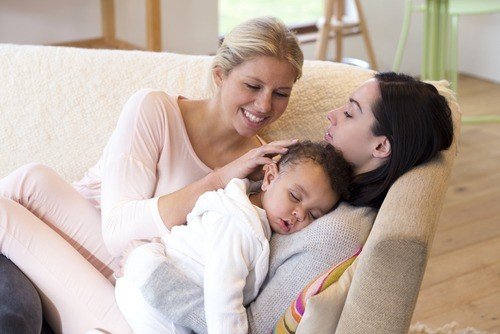
We have without a doubt come a long way with social equality. The United States Supreme Court made the landmark decision to legalise gay marriage. In the United Kingdom, female couples who opt for fertility treatment have the same rights as their heterosexual counterparts to be shown as parents in the birth registration. Meanwhile, Pope Francis has established himself to be accepting and supportive of LGBT rights.
This shows the gravity of institutionalised power – legal reforms, workplace policies, and other broadly influential developments and dispositions. But let us instead take a closer look at what may be a more insidious form of gender discrimination: public attitudes. Or, in a more accurate sense, the private attitudes of the general public. The old-fashioned perspective of an acquaintance. The potentially biased belief system of the stranger across you in the tube. The preferential thoughts, values and convictions of a passerby in the street. In Thailand, a surrogate mother adamantly refused to sign papers allowing the child to leave the country upon discovering that the newborn would be raised by a same-sex couple. The crux of the matter is that people out there still think of “unconventional” upbringing as highly questionable and worrying. Fortunately, spouses Gordon and Manuel won the custody battle. But have gay and lesbian couples succeeded in the battle against stereotypical disapproval and stigmatising criticism?
According to an official study, same-sex parents are indeed judged with more scrutiny than straight parents are. In a realistic restaurant scene, participants were asked to react to certain children’s undesirable behaviours. The participants who scored higher in modern prejudice rated the parenting of same-sex parents more negatively than that of opposite-sex parents, even though the latter’s children conducted themselves just as unpleasantly.
As a result, same-sex partners are subjected to a cultural hot seat – a societal spotlight – that renders them feeling as though they need to prove the quality of the way in which they have decided to raise a child. What is critical here, however, is that this trend sees no correlation with the levels of health, well-being and emotional struggle in the children themselves. In other words, the offspring of gay fathers and lesbian mothers are well-adjusted individuals as normal as other offspring. Factors considered among others are self-esteem, academic achievement, interpersonal skills and overall happiness. Same-sex and heterosexual parents are equally capable – there is no basis for differentiation.
In fact a few years ago a comprehensive experiment concluded that children nurtured in lesbian households were even more psychologically well-adjusted and had fewer behavioural problems than their peers, with lower rates in rule-breaking and aggression. Another study further confirmed this existence of healthier physical, social, mental and emotional lifestyles. At the end of the day though the art of rearing the impressionable youth does not depend on gender, or norm, or tradition. It is about the dynamic between the co-parents, the bond of each with the children, and the camaraderie among all members of the family unit. This is precisely what family law aims to assist with: respecting and preserving that sense of goodwill under any and all circumstances.
Isabel is a guest blogger for Grayfords. She obtained her Bachelor of Arts degree in Political Science with a minor in Economics from Barnard College of Columbia University in New York City. She is currently pursuing the Graduate Diploma in Law at The University of Law in London.


